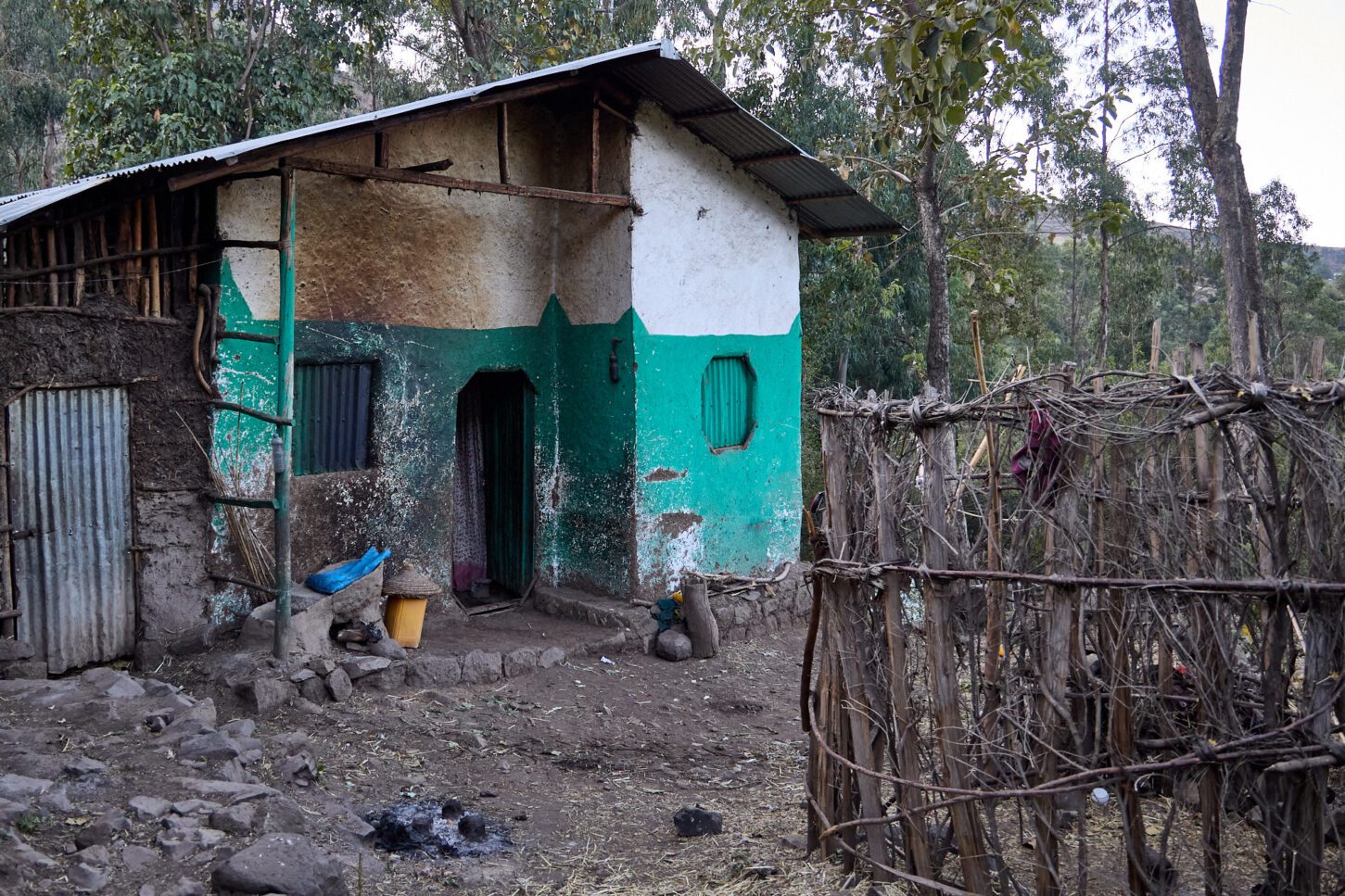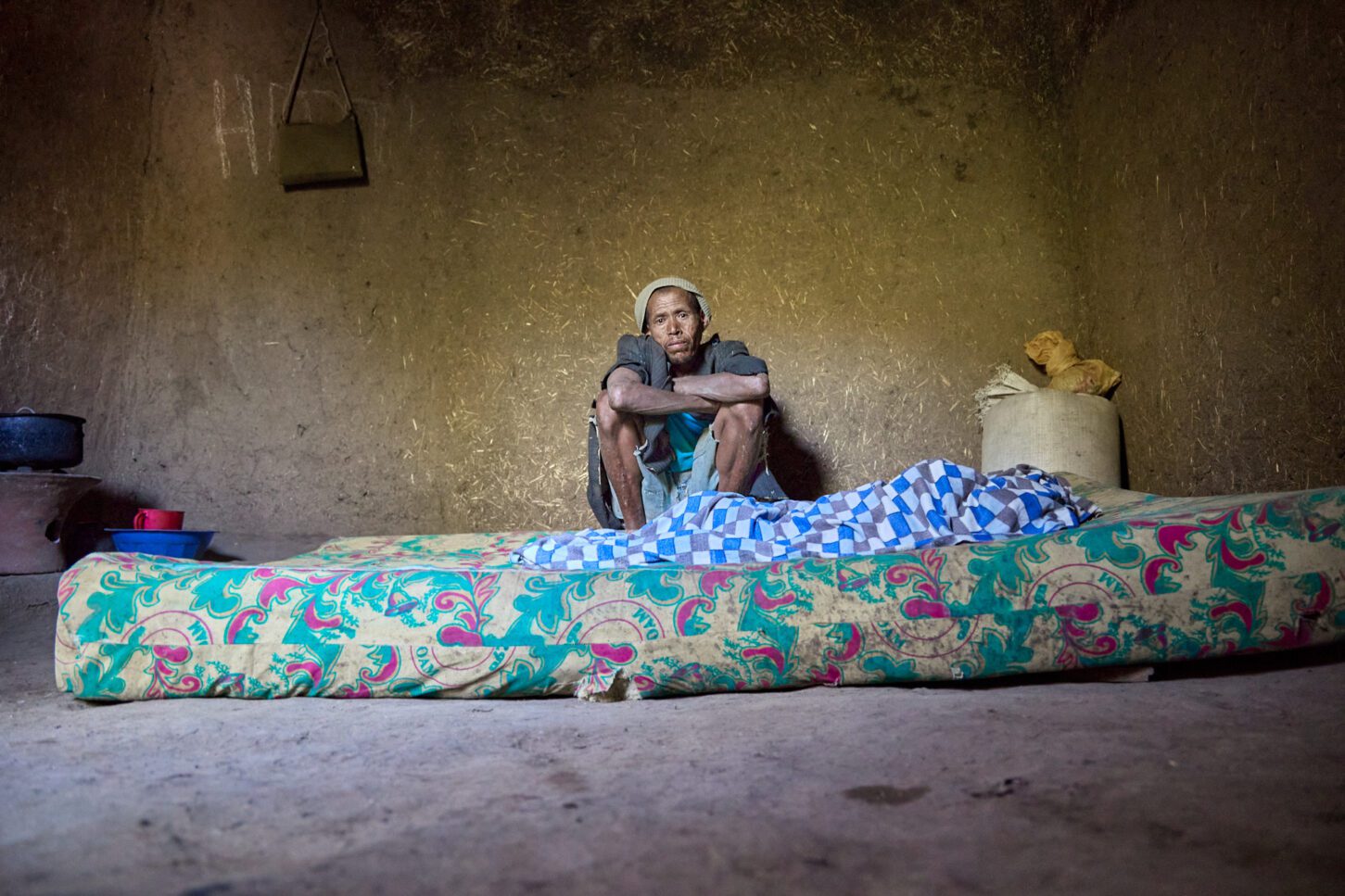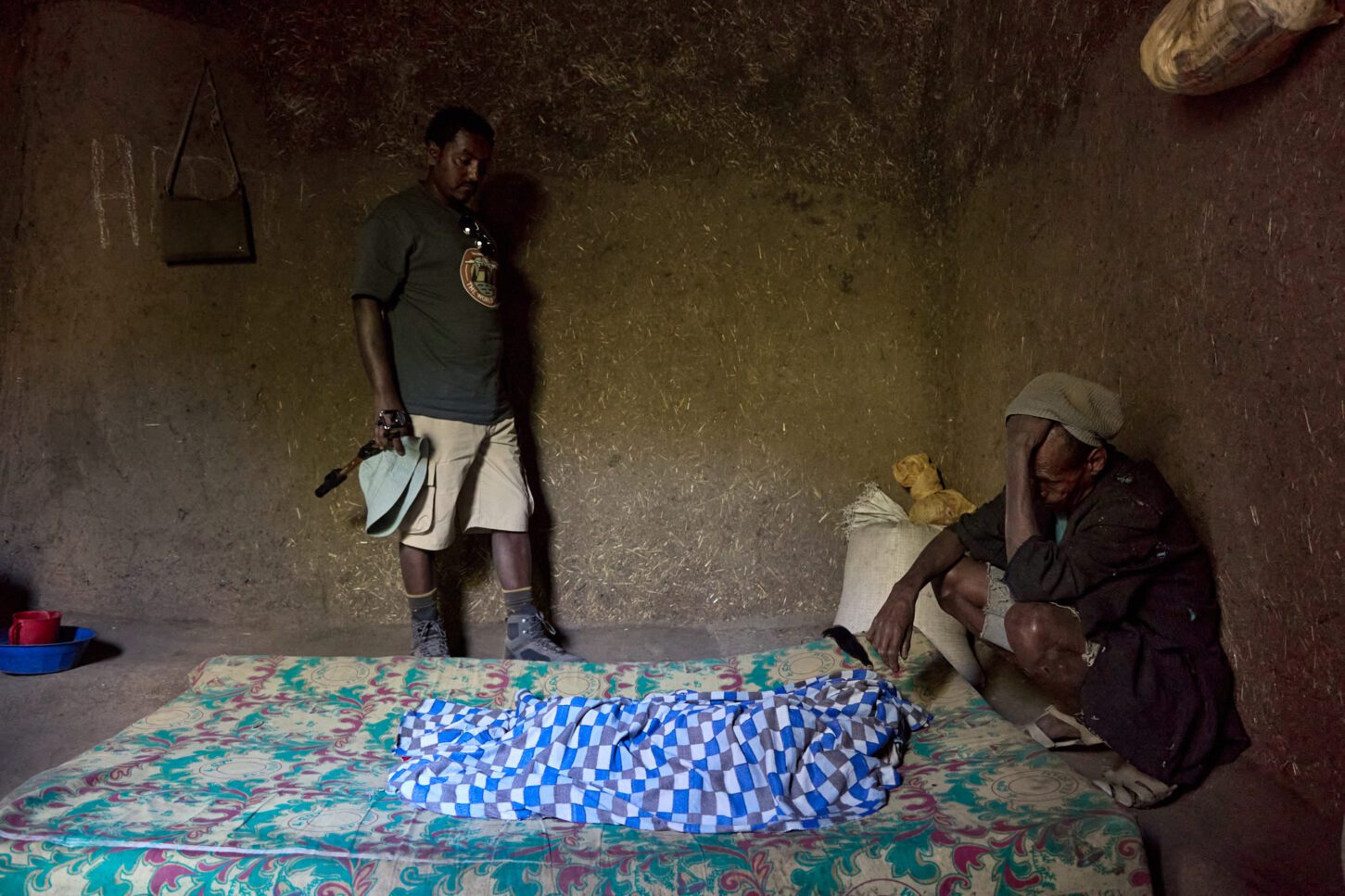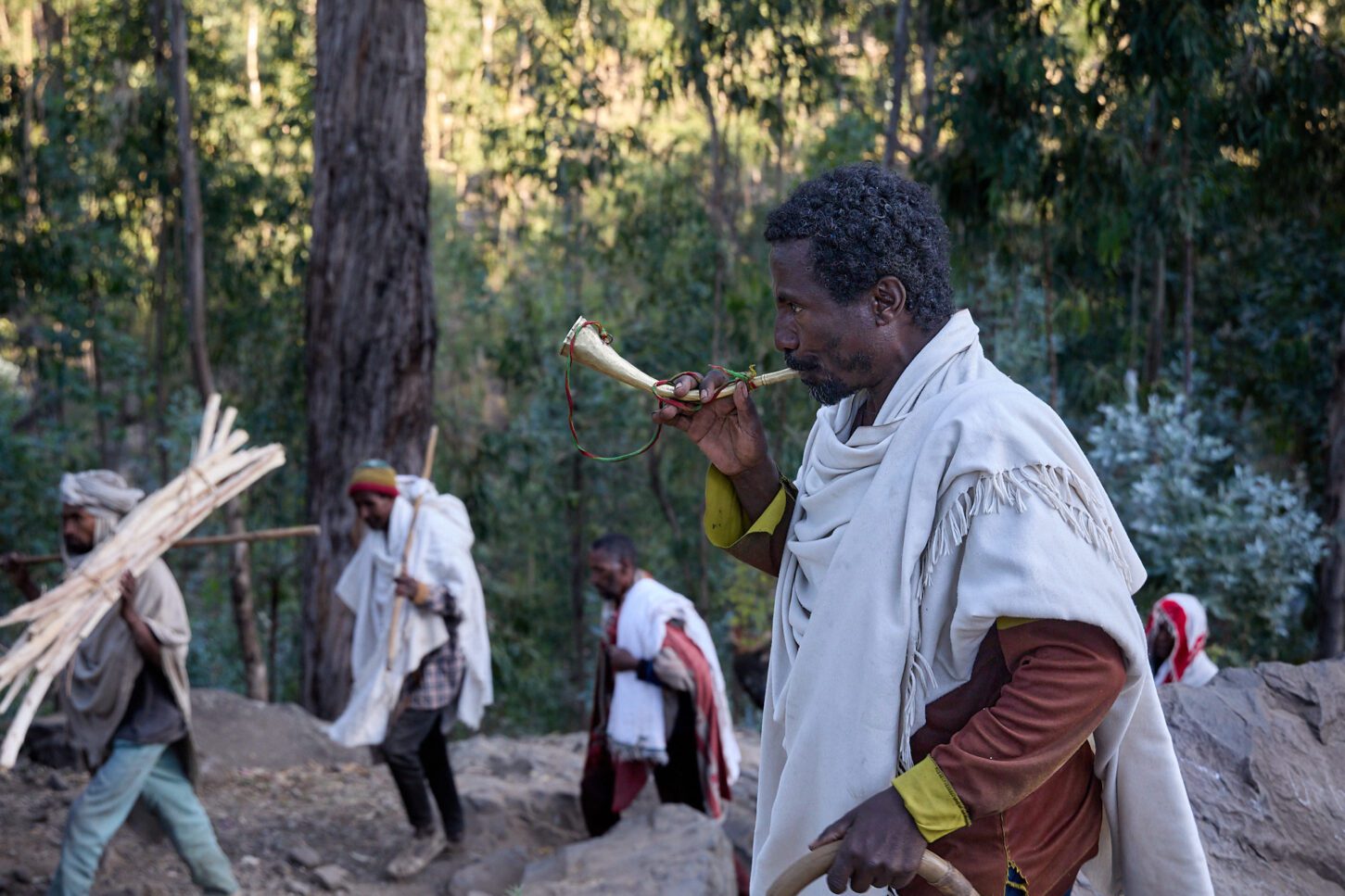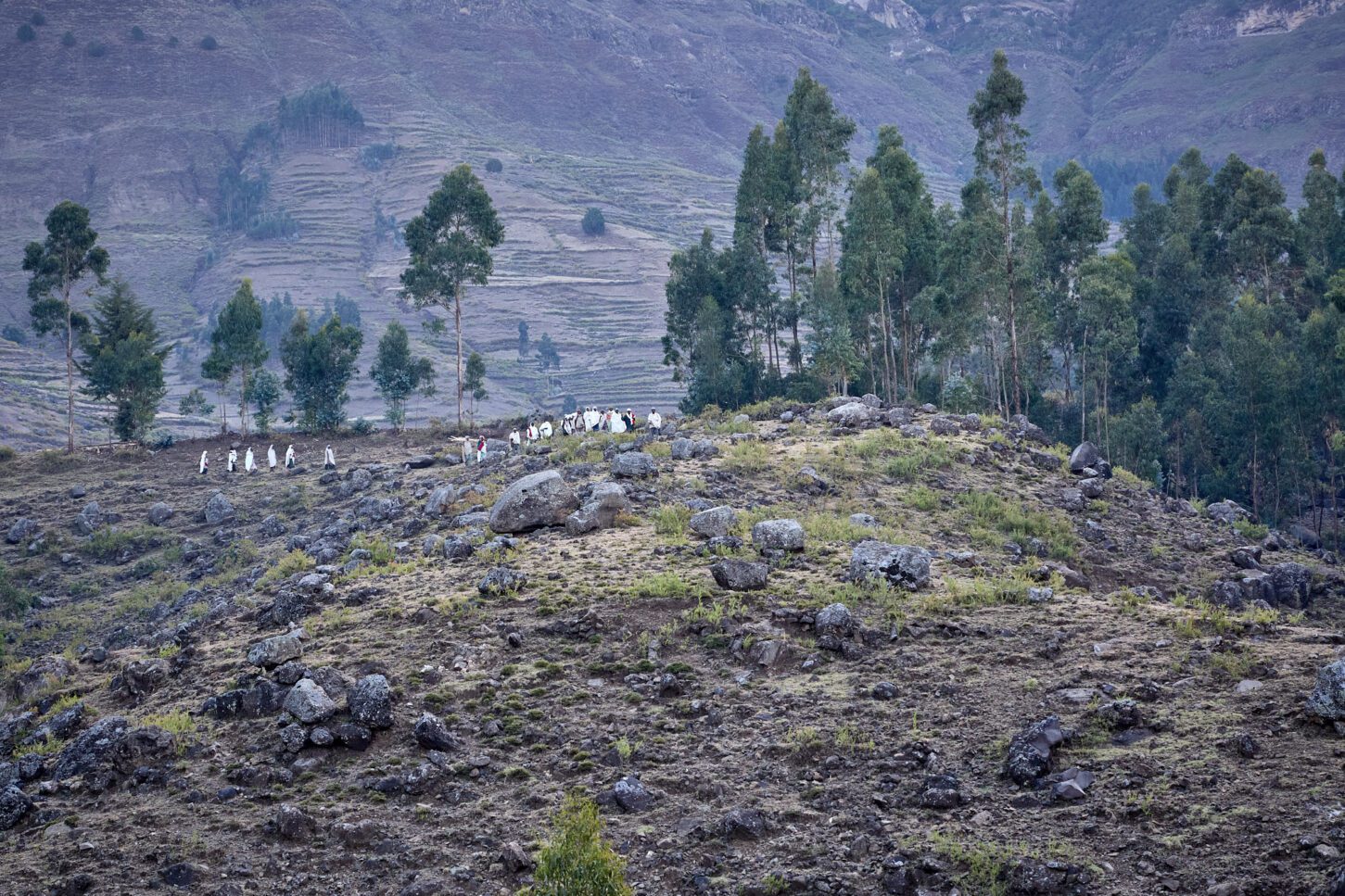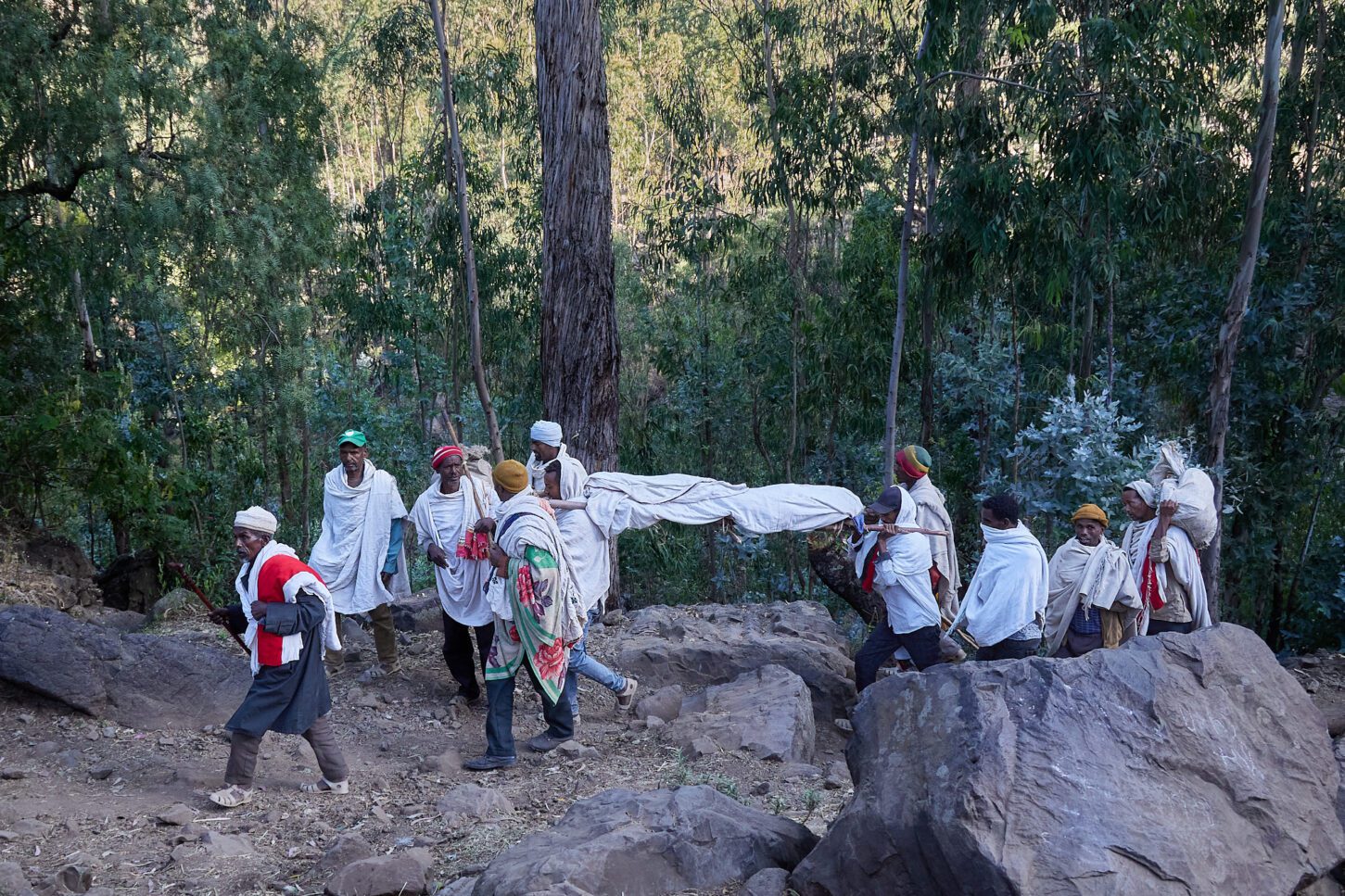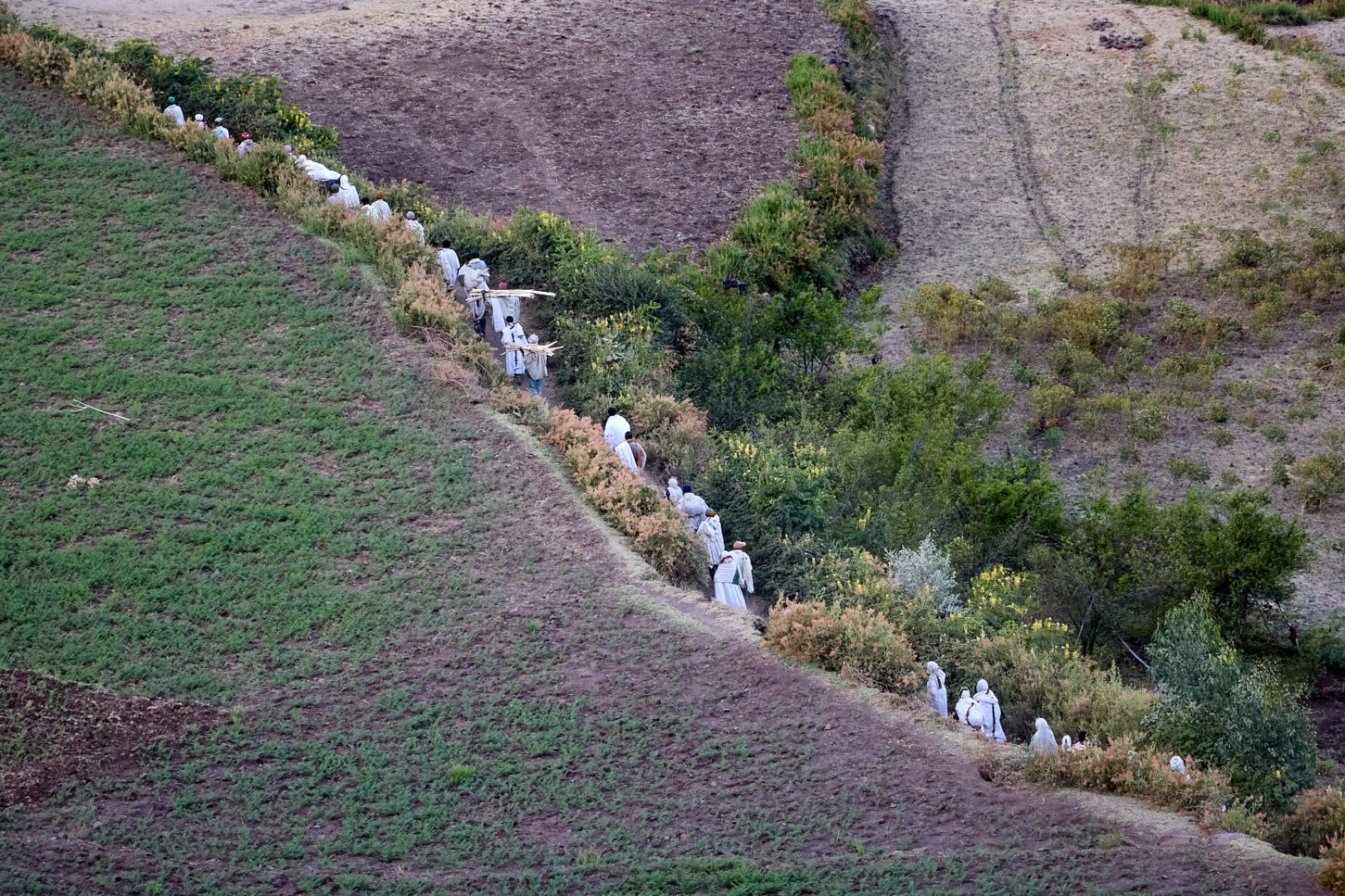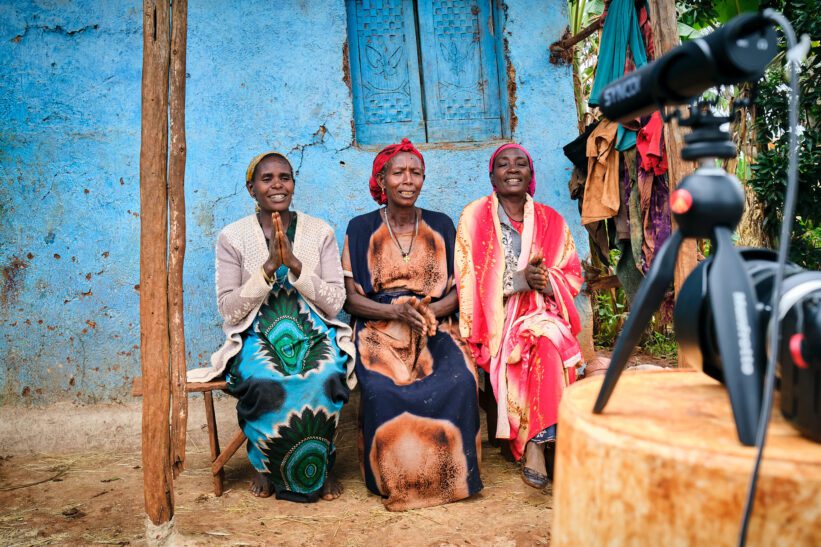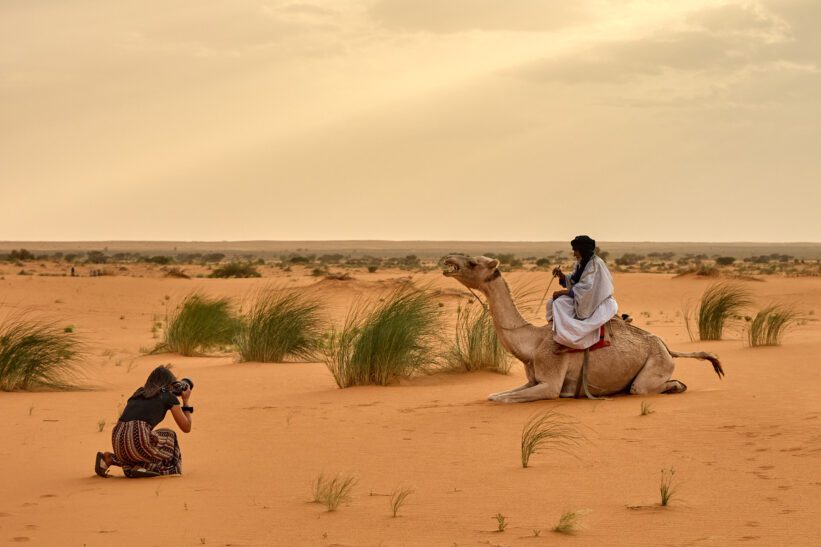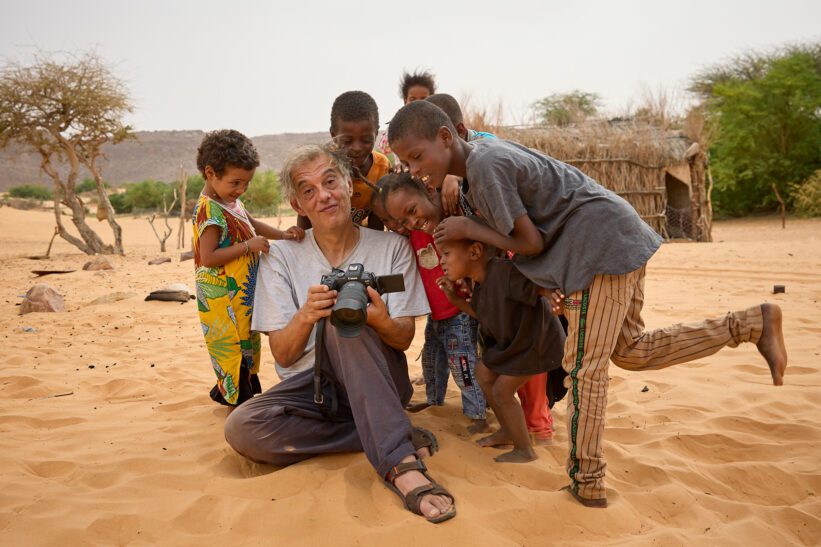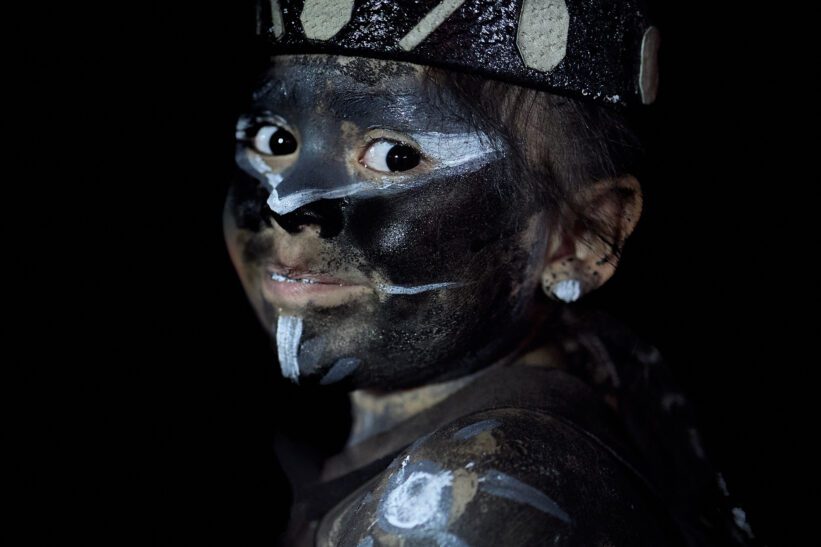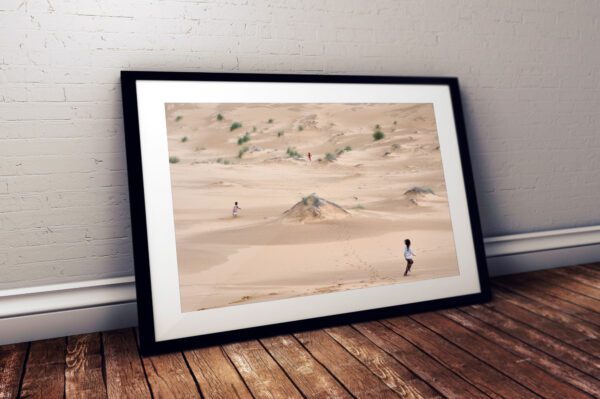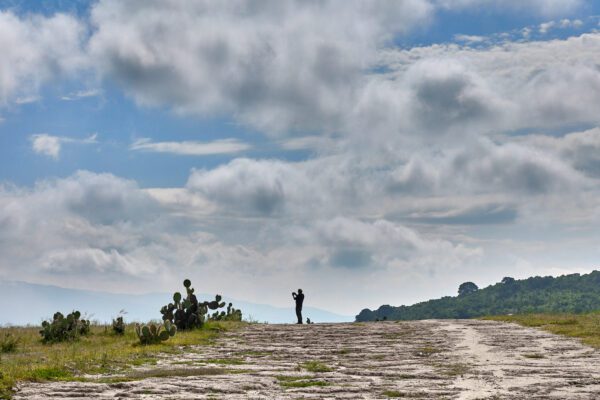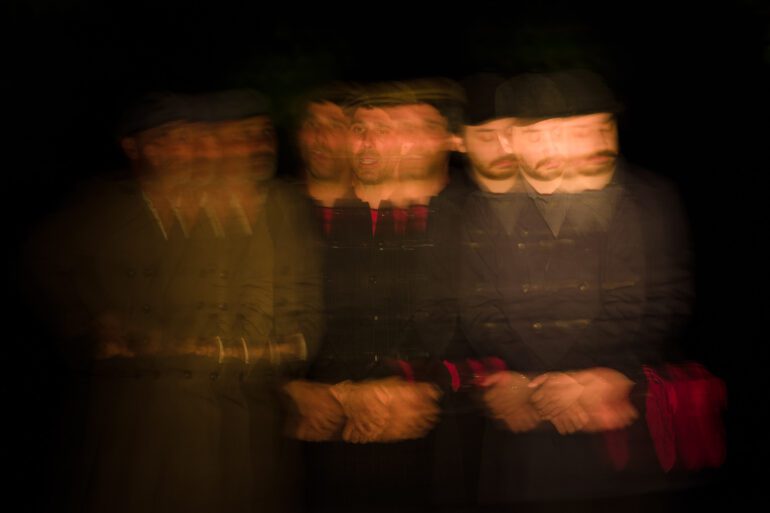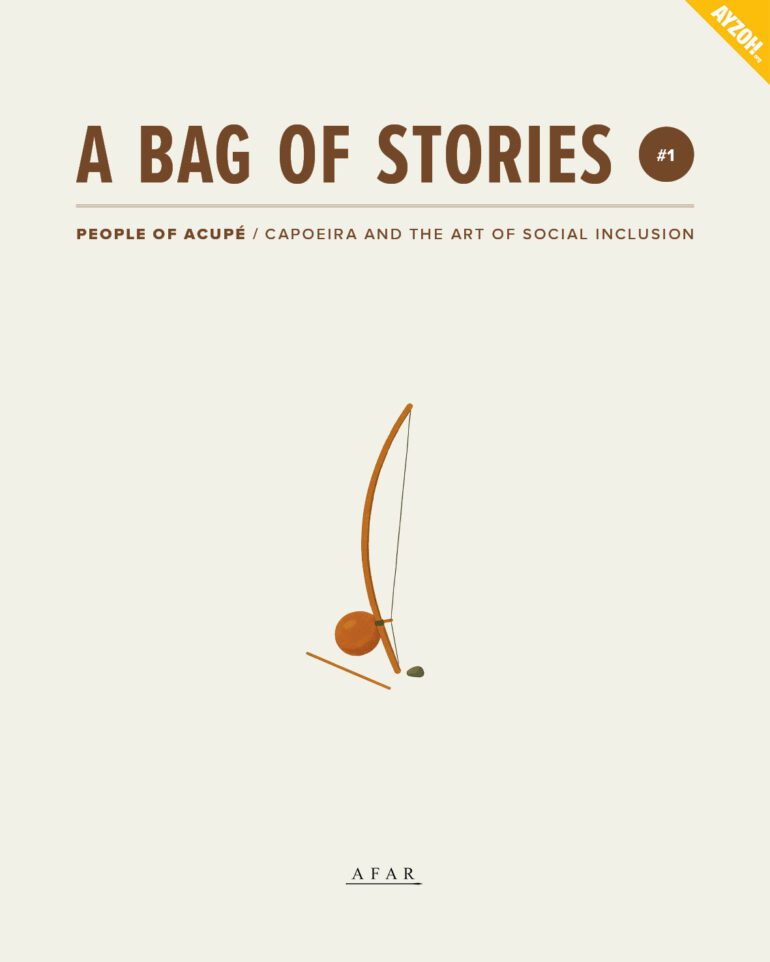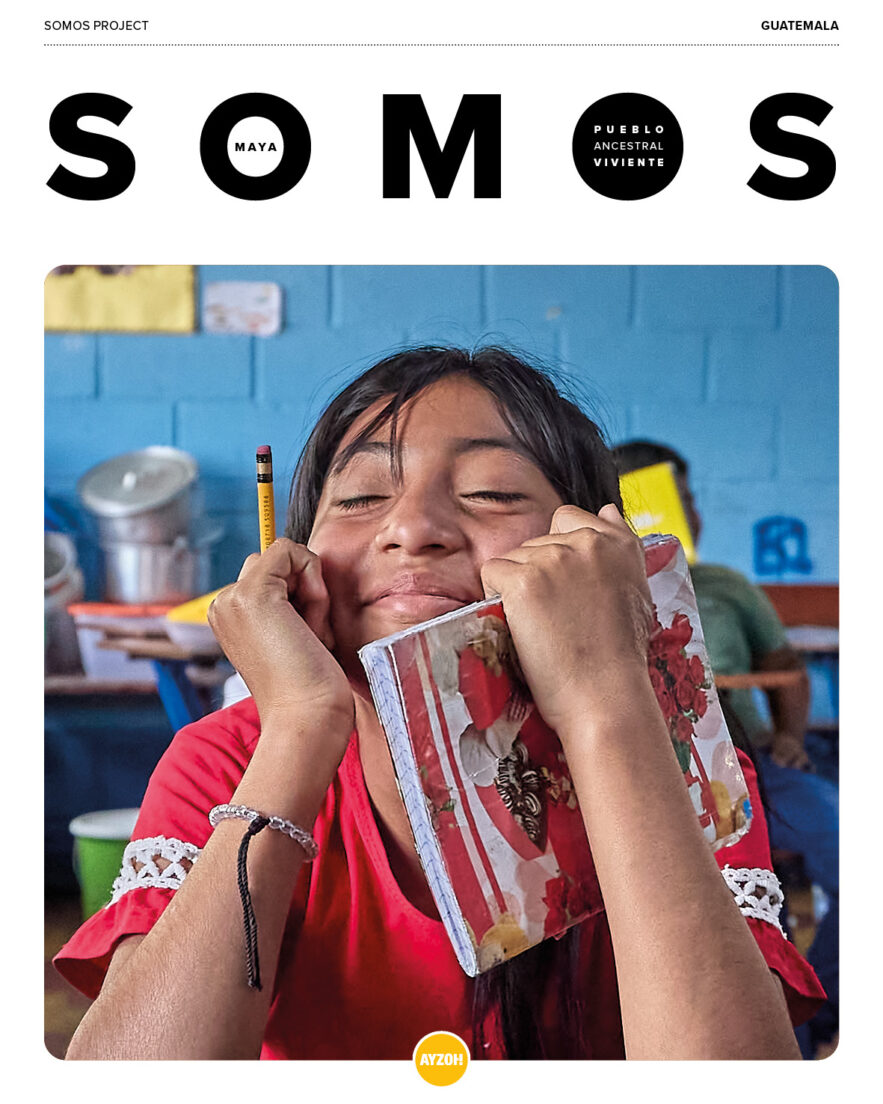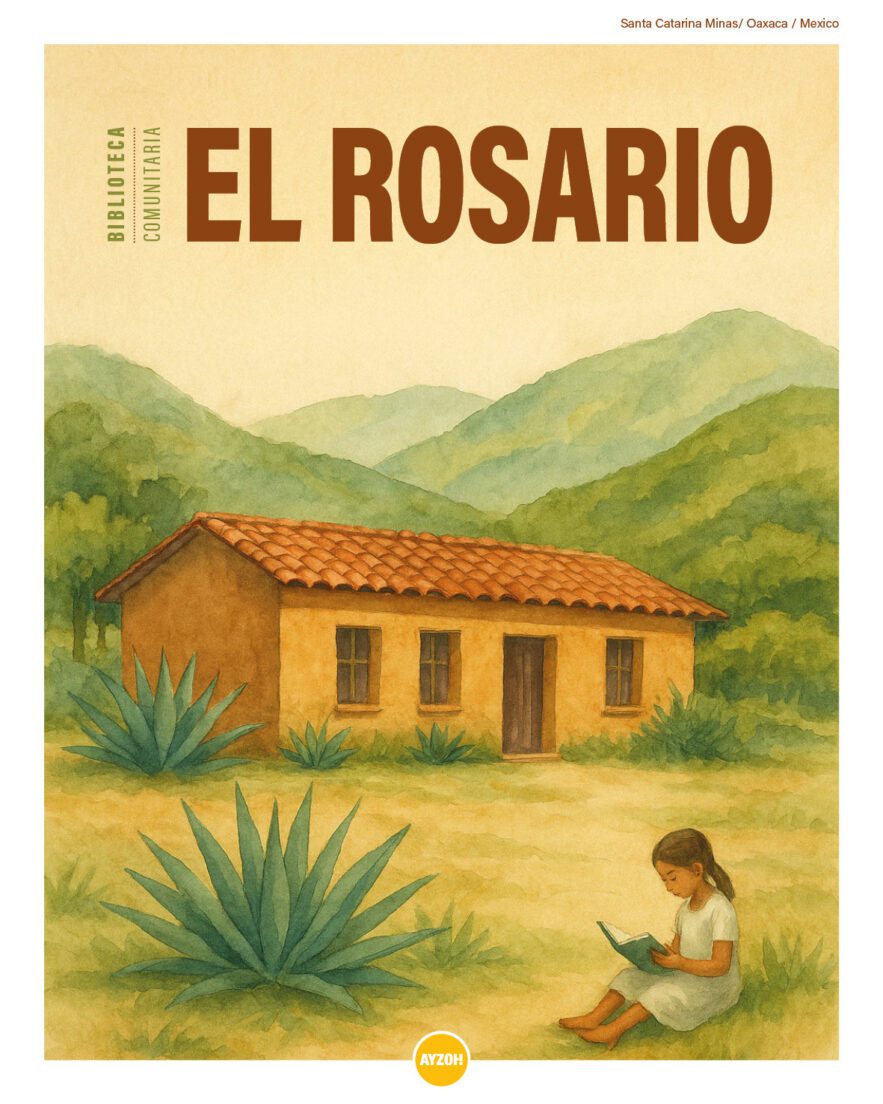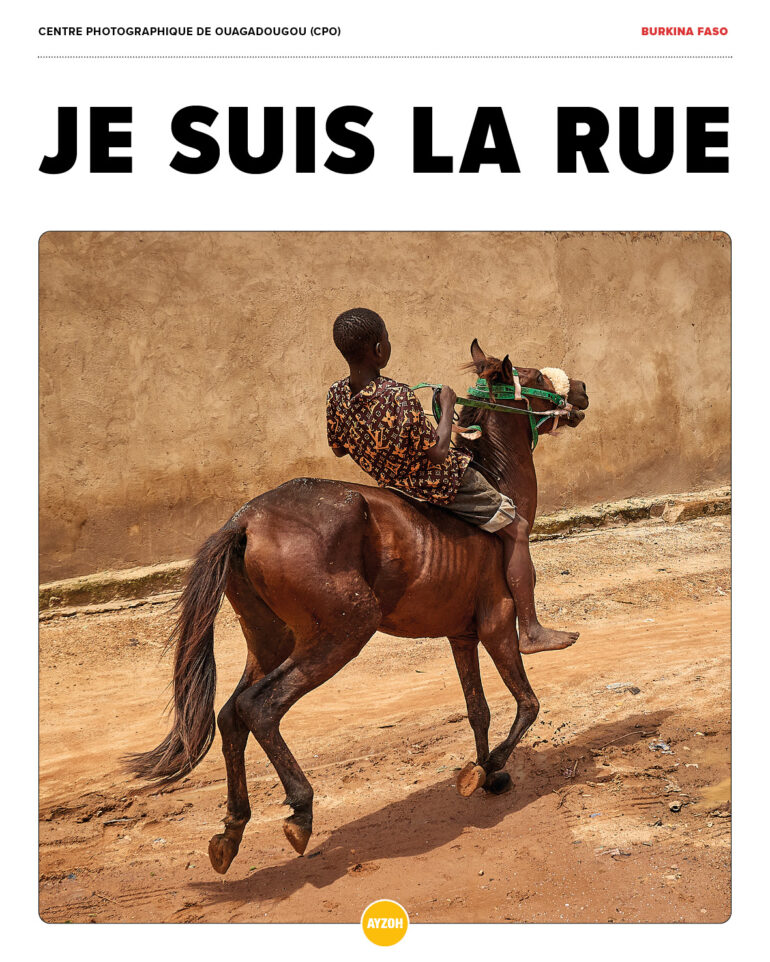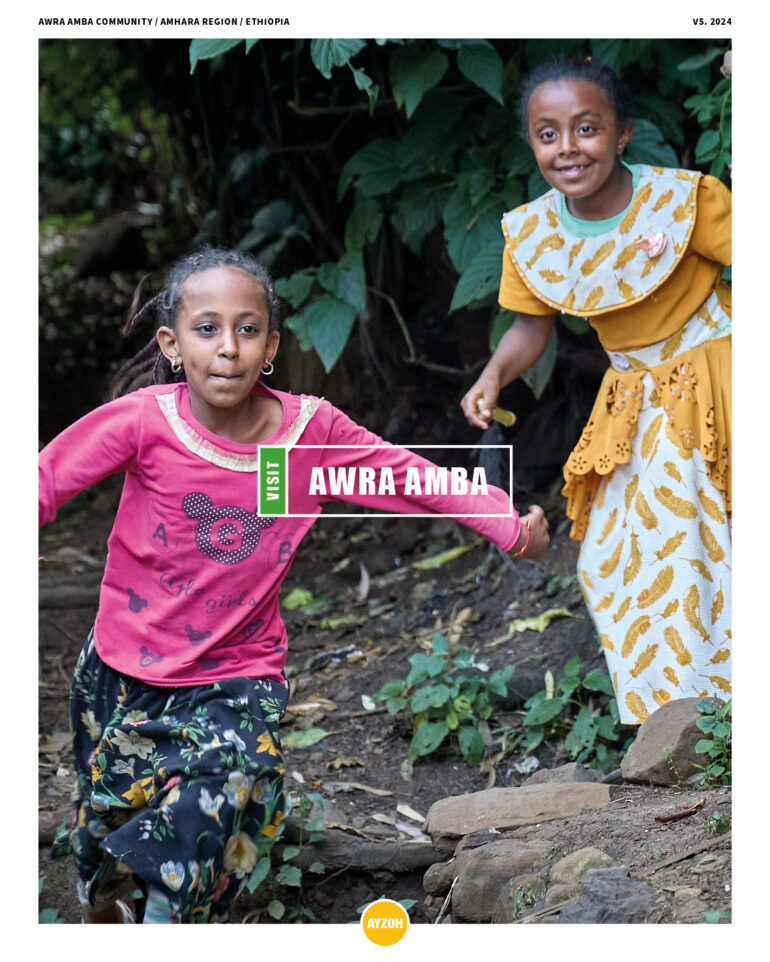We find ourselves in Baregota, a small village 8 km from Lalibela, where we are set to build a school for 254 children, using photography among other methods (but that’s a story for another time).
After surveying the land granted by the community, we begin the descent into the valley. Like the climb, it’s not easy: there are no roads, just steep, rocky paths clinging to the cliffs.
We are happy. Every humble dwelling we encounter offers us an invitation to step inside, share injera, or sip the local honey-based birra.
Laughter fills the air, and there are many embraces. But at the fifth house, despite children playing outside, the mood shifts. It turns somber.
We enter. On a mattress, wrapped in a blue blanket, lies a woman. No one knows her exact age… 95, maybe 100. With no living relatives, this family has taken her in.
She’s been ill for a long time, confined to that mattress for weeks. She’s frail, a shadow of her former self, though they tell me she was once a tall, strong woman. She is delirious. They ask me:
“Could you take her to the hospital?”
I approach her, look closely, and say, “No, it’s not necessary. She’s at the end.”
“How do you know?”
“She reminds me of my mother: reduced to a skeleton, no longer recognizing anyone, speaking only to her deceased — asking them to come for her. She had that breath, but her heart was still strong, so she held on.”
“And what did you do?”
“My mother was in a hospital where machines, if the heart is still strong, can keep you alive for a very long time, even if you don’t want it. So, I asked the nurses to do something… or perhaps stop doing something.”
“And what did they do?”
“I’m not sure, but I believe they granted my wish. She passed away a few hours later.”
“We could never do that. For us, it’s a taboo: life belongs only to God.”
“Then ask your God if He can come for her. Asking isn’t a sin.”
Amlaku translates. I leave. They talk among themselves for a while, and then they do it: they pray and ask God to take her, to end her suffering. It works; within two hours, the woman passes away.
After a few hours of prayer, they wrap her in a white shroud, blow a horn to gather the entire village, and set out in a procession—along those rocky paths and extraordinary landscapes—heading to Lalibela to bury her.
I followed them for a while, but they were too fast for me. I was always searching for the perfect shot, mindful of not tumbling down a precipice.
So I stopped. It saddened me a little, but it felt right. Sometimes, even in photography, you have to know when to stop and let go.

